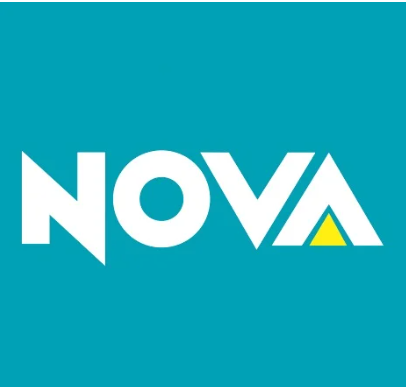Teach English in Tokyo
a world of opportunities
Join a global community of over 200,000 TEFL teachers working throughout the world! Enrol me!
Contents
Why teach English
Requirements
Jobs and programs
How to get a job
Salaries and benefits
Common benefits
Cost of living
Life and culture
Teaching English in Tokyo is a great opportunity to make some good ol’ cash, experience a new culture and add some colour to your CV!
Transport yourself into the futuristic city of Tokyo. A place where you can sing your heart out in a karaoke bar, experience the crowds at Shibuya Crossing, practise kintsugi, catch a glimpse of geishas in Kagurazaka, visit the beautiful temple of Senso-ji or shop up a storm at Isetan. Tokyo is the past, present and future all in one.
Tokyo is a technologically advanced city, with a booming economy. This is very good for business, as many schools and companies invest in English learning. There are plenty of opportunities to earn a competitive salary teaching English in Tokyo.
Tokyo is a great base for travelling around Japan, too. Taking day trips is common for expats and locals alike. You can take the train to Kanagawa hot springs to relax and unwind, visit museums and see an active volcano while you are at it.
Why teach English in Tokyo
We don’t think you’d need any reasons to teach English in Tokyo but just in case you’re not totally convinced (yet!), here are a few more reasons:
- Money, money, money! Need we say more?
- Live in the future, while living in the past. Tokyo is a futuristic city with traditional heritage bursting at the seams – a traveller’s dream!
- The lifestyle. Fancy a night out? Sake houses, karaoke bars and sushi houses are sprawled all over the city. Prefer a more cultural vibe? Museums, temples and festivals will keep you on your toes too.
What are the requirements to teach English In Tokyo?
TEFL in Japan is a thriving industry and English teaching jobs in Tokyo are quite competitive as so many TEFL teachers want to teach here! Luckily for us, there are plenty of teaching jobs for everyone!
What will I need to qualify to teach in Tokyo?
To teach English in Tokyo, you will need to consider degree and TEFL certification requirements and start-up costs.
1. Degree requirements
To teach English in Tokyo, a Bachelor’s degree is required.
2. TEFL certification
A high-quality, internationally recognised TEFL qualification is your secret weapon to finding a job in Tokyo.
A Level 5 TEFL certificate from The TEFL Academy provides you with knowledge of the foundations of teaching English as a foreign language while giving you a taste of practical teaching in the EFL classroom. It is exactly what you need to get a TEFL job in Tokyo.
3. Start-up costs
Tokyo is by no means a cheap city. Moving to Tokyo requires a certain amount of capital in order to survive in this crazy city until your first paycheque arrives in your bank account.
Common start-up costs include:
- Accommodation: If accommodation is not provided by your employer or included in your salary, you will need capital to cover a deposit and the first month’s rent. You may be expected to give your landlord key money as a gift – think of it as a non-refundable deposit.
- TEFL certification: A TEFL course can cost between $100 and $500, depending on the length and level of the course and the course provider.
- Document fees: Any costs related to certifying and notarising your degree and TEFL certificate
- Flight ticket: Variable. Your flight may be reimbursed by your employer.
- Visa application: The cost of getting a work visa is subject to your home country. You can expect to pay between $25 and $50.
- Living expenses: Generally speaking, without including any expenses related to accommodation, it’s recommended that you have approximately ¥ 70,000 – ¥ 80,000 ($500 – $600) at your disposal until your first paycheque.
What is not required to qualify to teach English in Tokyo?
Japan is quite strict with its visa and application requirements. But the good news is that you don’t need to have teaching experience! Japan’s government exchange teacher programs are great opportunities for new teachers to gain teaching experience.
Not a native English speaker? There is a way to work around that! If you can attain a high enough score on a recognised certification of language proficiency, such as the IELTS test, and show proof of previous teaching experience, your chances of teaching English in Tokyo are much higher.
Types of teaching jobs in Tokyo
Each program and job has its own prerequisites and benefits. Most, if not all positions, will require that a TEFL teacher’s schooling career’s medium of instruction was in English. Let’s look at the basic requirements for the most popular government programs and language schools in Tokyo.
1. The JET program
- TEFL certificate
- Bachelor’s degree
- Native English
- Private and public school placement
- Large class sizes
- Co-teaching with the main teacher as an ALT (Assistant Language Teacher)
- Salary range: ¥ 275,000 – ¥330,000 ($2,100 – $2,500) a month
2. Interac
- TEFL certificate
- An ALT (Assistant Language Program) position
- Most placements are in rural areas
- Hiring across the year
- Takes 2 months to receive your first paycheque
- Salary range: ¥230,000 – ¥250,000 ($1,711 – $1,860)
- Subsidised flights up to $1,200
2. Westgate
- University program
- 3–5 month contracts
- Bachelor’s degree as a minimum
- No Master’s degree required
- TEFL certificate
- Salary range: ¥260,000 ($1,935) for a TEFL teacher with less than 499 hours of teaching experience. ¥275,000 ($2,046) or more for TEFL teachers with more than 500 hours of teaching experience.
3. JIEC Program
- Bachelor’s Degree
- 2 years of EFL teaching experience
- Mainly kindergarten positions
- Teaching hours are usually after school hours and on weekends
- Hires all year round
-
- Paid accommodation
- Settlement bonus
4. NOVA Japan
- Bachelor’s degree
- Native English speaker
- No teaching experience required
- Private English language school
- Mixed classes (1:1 conversational Business English lessons to traditional classroom lessons)
5. Gaba
- Fluent English Speaker
- TEFL Certificate
- Experience in a corporate environment
- Private language school or eikaiwa
- 1 on 1 classes: Minimum ¥1,400 ($11) per lesson (40 mins)
- Choose your lesson schedule for the following month
- No flight or housing benefits
5. Benesse BE studio
- Bachelor’s degree
- Fluent English Speaker
- Must already be in Japan and have a valid working visa
- Most students are under 7 years of age
- Small class size (maximum of 8 students)
- Teaching after school hours
- Salary range: ¥240,000 – ¥275,000 ($1,786 – $2,046) a month
How to get a job teaching English in Tokyo
Finding a job is pretty simple if you have the basic requirements. Having a reputable TEFL certificate shows you are serious about teaching English in Tokyo. If you have teaching experience, a basic Level 3 TEFL certificate (120 hours) will do. However if you don’t have any teaching experience, a Level 5 Combined Course (168 hours) will give you-in class teaching practice and that added oomph to your CV.
The next step would be to actually find what type of teaching job you want. Do you want to teach English in Tokyo at a public or private school, or at a university? Or maybe you want a bit of flexibility, where you can teach adults and Young Learners.
The best places to look for ESL jobs in Tokyo are on:
- Jobs boards
- JET Program website
- Westgate University program website
Average salary for teaching English in Tokyo
Teaching English in Tokyo comes with competitive salary offers. The higher your qualification and teaching experience, the higher your salary. Private and public schools salaries and benefits will differ, depending on the school.
On average you can expect to take home a minimum of ¥230,000 ($1,700) as a new TEFL teacher, and up to ¥670,000 ($5,000) as an experienced and qualified English teacher at a university in Tokyo.
Working at a university brings in the highest salary. If you are looking to strengthen your application, and gain valuable experience and expertise, working in Japan at a public or private school is a great start to getting a university position.
What are the common benefits for teachers in Tokyo?
Benefits vary depending on your school or employer. Here are some things that may be included in your contract:
- Reimbursed flights
- Settlement bonus
- Work visa sponsorship
- Health insurance
- Heavily subsidised (or sometimes free) housing
- Paid vacation
What is the cost of living in Tokyo?
According to Mercer’s Cost of Living Index, Tokyo is ranked 3rd in East Asia, just after South Korea and Hong Kong. This is great news for TEFL expats as the cost of living is lower than South Korea and Hong Kong!
These are the basic expenses you can expect living in Tokyo:
Accommodation
- One-bedroom apartment in city centre: ¥100,000 ($750)
- One-bedroom apartment outside city centre: ¥75,000 ($550)
Utilities
- Water, electricity, heating, garbage: ¥15,000 – ¥20,000 ($100 – $150 USD)
Food and groceries
- Monthly shop: ¥20,000 to ¥40,000 ($180 – $370)
- A meal at an inexpensive restaurant: between ¥750 and ¥1,500 ($5 – $10)
Public transport
- Monthly pass: ¥8,000 ($60)
Internet and phone
- Internet, unlimited: ¥5,000 ($35)
- Phone, per minute: ¥35 ($0.2)
Entertainment
Cinema, gym, going out etc: ¥6,700 ($50)
What is it like living and working in Tokyo?
The Japanese are polite. Teachers are well-respected and the locals are very polite and respectful. Japanese society is very polite and friendly, so you will feel welcomed.
The Japanese are punctual. Besides being polite, Japanese people are strict when it comes to punctuality. Be sure to arrive at work at least 15 minutes before work to make a good impression.
Japan is clean. Keeping yourself looking professional, as well as having a clean work space, is essential. Helping clean your work environment will speak volumes and win over a lot of praise.
Tokyo is a big city. Tokyo is the busiest city in Japan and is very crowded. Commuting can be quite stressful, particularly during peak morning and evening hours, as trains are super crowded with people going to and coming from work.
English is not common. Many locals don’t speak English, so it’s best to brush up on your Japanese to get around.
If you’re seriously considering teaching English in Tokyo, chat to us about one of our TEFL courses and find out how we can help you start your TEFL teaching journey.
Contents
Teaching English in Tokyo is a great opportunity to make some good ol’ cash, experience a new culture and add some colour to your CV!
Transport yourself into the futuristic city of Tokyo. A place where you can sing your heart out in a karaoke bar, experience the crowds at Shibuya Crossing, practise kintsugi, catch a glimpse of geishas in Kagurazaka, visit the beautiful temple of Senso-ji or shop up a storm at Isetan. Tokyo is the past, present and future all in one.
Tokyo is a technologically advanced city, with a booming economy. This is very good for business, as many schools and companies invest in English learning. There are plenty of opportunities to earn a competitive salary teaching English in Tokyo.
Tokyo is a great base for travelling around Japan, too. Taking day trips is common for expats and locals alike. You can take the train to Kanagawa hot springs to relax and unwind, visit museums and see an active volcano while you are at it.
Why teach English in Tokyo
We don’t think you’d need any reasons to teach English in Tokyo but just in case you’re not totally convinced (yet!), here are a few more reasons:
- Money, money, money! Need we say more?
- Live in the future, while living in the past. Tokyo is a futuristic city with traditional heritage bursting at the seams – a traveller’s dream!
- The lifestyle. Fancy a night out? Sake houses, karaoke bars and sushi houses are sprawled all over the city. Prefer a more cultural vibe? Museums, temples and festivals will keep you on your toes too.
What are the requirements to teach English In Tokyo?
TEFL in Japan is a thriving industry and English teaching jobs in Tokyo are quite competitive as so many TEFL teachers want to teach here! Luckily for us, there are plenty of teaching jobs for everyone!
What will I need to qualify to teach in Tokyo?
To teach English in Tokyo, you will need to consider degree and TEFL certification requirements and start-up costs.
1. Degree requirements
To teach English in Tokyo, a Bachelor’s degree is required.
2. TEFL certification
A high-quality, internationally recognised TEFL qualification is your secret weapon to finding a job in Tokyo.
A Level 5 TEFL certificate from The TEFL Academy provides you with knowledge of the foundations of teaching English as a foreign language while giving you a taste of practical teaching in the EFL classroom. It is exactly what you need to get a TEFL job in Tokyo.
3. Start-up costs
Tokyo is by no means a cheap city. Moving to Tokyo requires a certain amount of capital in order to survive in this crazy city until your first paycheque arrives in your bank account.
Common start-up costs include:
- Accommodation: If accommodation is not provided by your employer or included in your salary, you will need capital to cover a deposit and the first month’s rent. You may be expected to give your landlord key money as a gift – think of it as a non-refundable deposit.
- TEFL certification: A TEFL course can cost between $100 and $500, depending on the length and level of the course and the course provider.
- Document fees: Any costs related to certifying and notarising your degree and TEFL certificate
- Flight ticket: Variable. Your flight may be reimbursed by your employer.
- Visa application: The cost of getting a work visa is subject to your home country. You can expect to pay between $25 and $50.
- Living expenses: Generally speaking, without including any expenses related to accommodation, it’s recommended that you have approximately ¥ 70,000 – ¥ 80,000 ($500 – $600) at your disposal until your first paycheque.
What is not required to qualify to teach English in Tokyo?
Japan is quite strict with its visa and application requirements. But the good news is that you don’t need to have teaching experience! Japan’s government exchange teacher programs are great opportunities for new teachers to gain teaching experience.
Not a native English speaker? There is a way to work around that! If you can attain a high enough score on a recognised certification of language proficiency, such as the IELTS test, and show proof of previous teaching experience, your chances of teaching English in Tokyo are much higher.
Types of teaching jobs in Tokyo
Each program and job has its own prerequisites and benefits. Most, if not all positions, will require that a TEFL teacher’s schooling career’s medium of instruction was in English. Let’s look at the basic requirements for the most popular government programs and language schools in Tokyo.
1. The JET program
- TEFL certificate
- Bachelor’s degree
- Native English
- Private and public school placement
- Large class sizes
- Co-teaching with the main teacher as an ALT (Assistant Language Teacher)
- Salary range: ¥ 275,000 – ¥330,000 ($2,100 – $2,500) a month
2. Interac
- TEFL certificate
- An ALT (Assistant Language Program) position
- Most placements are in rural areas
- Hiring across the year
- Takes 2 months to receive your first paycheque
- Salary range: ¥230,000 – ¥250,000 ($1,711 – $1,860)
- Subsidised flights up to $1,200
2. Westgate
- University program
- 3–5 month contracts
- Bachelor’s degree as a minimum
- No Master’s degree required
- TEFL certificate
- Salary range: ¥260,000 ($1,935) for a TEFL teacher with less than 499 hours of teaching experience. ¥275,000 ($2,046) or more for TEFL teachers with more than 500 hours of teaching experience.
3. JIEC Program
- Bachelor’s Degree
- 2 years of EFL teaching experience
- Mainly kindergarten positions
- Teaching hours are usually after school hours and on weekends
- Hires all year round
-
- Paid accommodation
- Settlement bonus
4. NOVA Japan
- Bachelor’s degree
- Native English speaker
- No teaching experience required
- Private English language school
- Mixed classes (1:1 conversational Business English lessons to traditional classroom lessons)
5. Gaba
- Fluent English Speaker
- TEFL Certificate
- Experience in a corporate environment
- Private language school or eikaiwa
- 1 on 1 classes: Minimum ¥1,400 ($11) per lesson (40 mins)
- Choose your lesson schedule for the following month
- No flight or housing benefits
5. Benesse BE studio
- Bachelor’s degree
- Fluent English Speaker
- Must already be in Japan and have a valid working visa
- Most students are under 7 years of age
- Small class size (maximum of 8 students)
- Teaching after school hours
- Salary range: ¥240,000 – ¥275,000 ($1,786 – $2,046) a month
How to get a job teaching English in Tokyo
Finding a job is pretty simple if you have the basic requirements. Having a reputable TEFL certificate shows you are serious about teaching English in Tokyo. If you have teaching experience, a basic Level 3 TEFL certificate (120 hours) will do. However if you don’t have any teaching experience, a Level 5 Combined Course (168 hours) will give you-in class teaching practice and that added oomph to your CV.
The next step would be to actually find what type of teaching job you want. Do you want to teach English in Tokyo at a public or private school, or at a university? Or maybe you want a bit of flexibility, where you can teach adults and Young Learners.
The best places to look for ESL jobs in Tokyo are on:
- Jobs boards
- JET Program website
- Westgate University program website
Average salary for teaching English in Tokyo
Teaching English in Tokyo comes with competitive salary offers. The higher your qualification and teaching experience, the higher your salary. Private and public schools salaries and benefits will differ, depending on the school.
On average you can expect to take home a minimum of ¥230,000 ($1,700) as a new TEFL teacher, and up to ¥670,000 ($5,000) as an experienced and qualified English teacher at a university in Tokyo.
Working at a university brings in the highest salary. If you are looking to strengthen your application, and gain valuable experience and expertise, working in Japan at a public or private school is a great start to getting a university position.
What are the common benefits for teachers in Tokyo?
Benefits vary depending on your school or employer. Here are some things that may be included in your contract:
- Reimbursed flights
- Settlement bonus
- Work visa sponsorship
- Health insurance
- Heavily subsidised (or sometimes free) housing
- Paid vacation
What is the cost of living in Tokyo?
According to Mercer’s Cost of Living Index, Tokyo is ranked 3rd in East Asia, just after South Korea and Hong Kong. This is great news for TEFL expats as the cost of living is lower than South Korea and Hong Kong!
These are the basic expenses you can expect living in Tokyo:
Accommodation
- One-bedroom apartment in city centre: ¥100,000 ($750)
- One-bedroom apartment outside city centre: ¥75,000 ($550)
Utilities
- Water, electricity, heating, garbage: ¥15,000 – ¥20,000 ($100 – $150 USD)
Food and groceries
- Monthly shop: ¥20,000 to ¥40,000 ($180 – $370)
- A meal at an inexpensive restaurant: between ¥750 and ¥1,500 ($5 – $10)
Public transport
- Monthly pass: ¥8,000 ($60)
Internet and phone
- Internet, unlimited: ¥5,000 ($35)
- Phone, per minute: ¥35 ($0.2)
Entertainment
Cinema, gym, going out etc: ¥6,700 ($50)
What is it like living and working in Tokyo?
The Japanese are polite. Teachers are well-respected and the locals are very polite and respectful. Japanese society is very polite and friendly, so you will feel welcomed.
The Japanese are punctual. Besides being polite, Japanese people are strict when it comes to punctuality. Be sure to arrive at work at least 15 minutes before work to make a good impression.
Japan is clean. Keeping yourself looking professional, as well as having a clean work space, is essential. Helping clean your work environment will speak volumes and win over a lot of praise.
Tokyo is a big city. Tokyo is the busiest city in Japan and is very crowded. Commuting can be quite stressful, particularly during peak morning and evening hours, as trains are super crowded with people going to and coming from work.
English is not common. Many locals don’t speak English, so it’s best to brush up on your Japanese to get around.
If you’re seriously considering teaching English in Tokyo, chat to us about one of our TEFL courses and find out how we can help you start your TEFL teaching journey.

Download the World TEFL Factbook
We have created a unique TEFL World Factbook of teaching abroad guides in over 100 countries to help TEFL teachers decide where in the world to teach English. Each country profile outlines everything a TEFL teacher would need to know including average pay, living costs, working environments and even the weather!
Download TEFL Factbook
TEFL Jobs In Japan
View AllOther Places In Asia
View AllTeach English Abroad Articles
View All-
 Teach and Travel
Teach and TravelThings To Know About South Korean Classroom Culture
2025-07-10
-
 Resources
ResourcesTeaching On Wall Street English: What You Need To Know
2025-06-30
-
 Resources
ResourcesAwesome English Idioms For EFL Learners – And How To Teach Them
2025-06-27
-
 Teaching English Abroad Jobs
Teaching English Abroad JobsNavigating Culture Shock: My Real Experience Teaching English In Vietnam
2025-06-20
-
 Teach and Travel
Teach and TravelThings To Know About Chinese Classroom Culture
2025-06-15
-
 Teaching Online
Teaching OnlineOnline Teaching Platforms You Need To Know
2025-06-13
 United Kingdom
UK
United Kingdom
UK










































